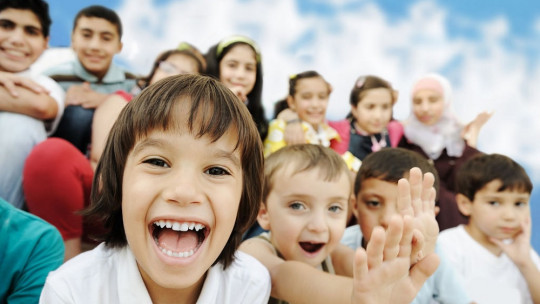
Society is currently going through a clear crisis of values. Moral ambiguity is the order of the day and postmodern relativism is stronger than ever, perhaps because of globalization, which facilitates contact and empathy with other cultures, perhaps because of a decline in previously established values, condemned to be reviewed systematically.
Either way, It is no longer so clear what is good and what is bad Some values are replaced by others, sometimes contradictory, and the most veteran people resist change while the new generations dismantle everything and put it back together.
One of the values that has been most devastating in recent years is freedom Freedom of expression, sexual freedom, but above all, freedom of choice, the right to choose. Many times, this value is questioned based on the argument of “more freedom, less security”, and it is not far off the mark.
Education in values and freedom
From an educational point of view, that citizens were capable of self-regulation, freely choosing each of their steps and yet maintaining a harmonious coexistence, is pure fantasy (in every sense of the word).
However, the reality is there, and half of the thinkers believe that man is a wolf to man. If as a society we grant too much freedom, there will be those who use it for their own benefits even passing over others, which is why we create laws, security forces and prisons, which continue to be a mechanism that regulates that freedom.
This tension is unsustainable. We cannot, on the one hand, defend that feminism means dressing however we want, but on the other hand, condemn certain ways of dressing because they hypersexualize the figure of women, objectifying them. We cannot, on the one hand, educate our students through constructive learning, and on the other hand, assess their academic performance on a specific numerical scale from 0 to 10.
The way for this new wave of freedom to flow is attending, as always, to education in values It is true that freedom is the path to optimal functioning in society, but this freedom, this ability to choose, gives us power, power over our lives and power over the lives of our fellow human beings. This can be written at any time: with great power comes great responsibility.
Collective responsibility and ethics
Freedom brings responsibility I can have the freedom to dress however I want, but act responsibly and choose an option that does not contribute to maintaining hegemonic gender values, harmful to my society, and at the same time, legitimize another person choosing the other option without judging them.
Responsibility is not a coercion, it is not a prison. Responsibility is freedom, it is the ability to choose, but to do so with judgment and reflection Choosing responsibly is not choosing “correctly” (nothing guarantees us choosing “correctly”), it is simply not choosing lightly, being aware that what we choose can affect others, just as what others choose us. can affect us.
It is because of that We consider it very important to educate in the value of responsibility at an early age and insist on it throughout schooling.
It is crucial to teach students to ask themselves what they can do to achieve their goals, to train them to recognize those situations in which they enjoy some kind of power that entails that responsibility, or to educate them in empathy and other social skills. More than anything because this time of change cannot be consummated if that value does not have the prominence it needs, and then it will leave us in eternal debates that, not only will they not end with the established values, but will create in many people the feeling of doing things contrary to their ideals, falling into the discomfort known as cognitive dissonance, or making them incapable of choosing one option or another, falling into the discomfort known as learned helplessness.








